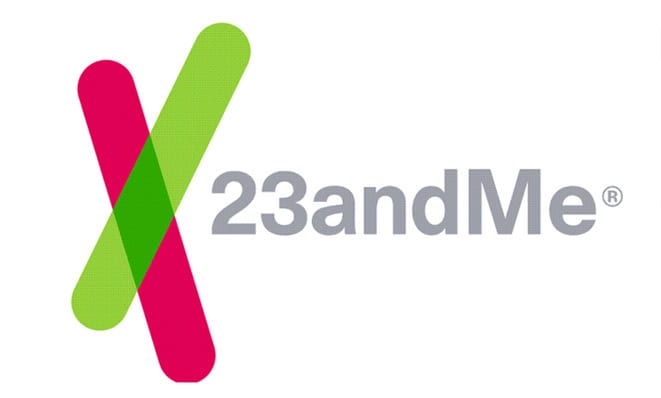
The personal information is more vulnerable than ever in the digital age. Our broad digital trail includes everything from banking details to social networking accounts. However, our DNA is frequently overlooked in terms of our private data. With the increasing popularity of genetic testing companies like 23andMe, it is essential to understand the importance of cyber security in protecting our DNA data. Take a closer look at this blog to gain more insight into this issue.
About 23andMe
With 23andMe, you can delve into your DNA and uncover intriguing details about your ancestry and more recent family connections. We pride ourselves on our significant DNA data, second only to AncestryDNA. Both services use comparable DNA collection kits at a similar price. But what sets us apart is the wealth of information we provide about your ancestry, exploring your maternal and paternal lines. We also offer insights into the presence of Neanderthal DNA in your genetic composition. And we don’t stop there. We provide a wide range of optional DNA-based health tests, ensuring you have all the information you need.
Genetic Health Screening Services
When it comes to genetic health screening, 23andMe offers two options: the Health + Ancestry kit priced at $199, and the Ancestry kit priced at $99. The Health + Ancestry plan is a comprehensive and convenient choice, as it includes testing for five genetic health risks, such as Parkinson’s disease. It also provides information about your carrier status for cystic fibrosis and over 39 other diseases. Additionally, the service offers a Wellness report that evaluates various factors, including your genetic predisposition for weight. The company’s Traits report is another unique feature, providing insights into your chances of experiencing hair loss and your taste preferences for sweet or salty foods.
Why Are People Worried About Their Genetic Data’s Cybersecurity?
With technological advancements, more and more individuals are turning to genetic testing providers like 23andMe to explore the secrets hidden within their DNA. These companies provide valuable insights into our heritage, potential health risks, and potential familial connections. However, the convenience of accessing information quickly also brings about significant concerns regarding data security.
Data Breaches
There are concerns about the security of storing large amounts of genetic information in electronic repositories. If hackers access this sensitive data, it could be used for malicious purposes like identity theft, insurance fraud, and genetic discrimination.
Third-Party Sharing
Genetic testing companies often work with various entities, such as drug manufacturers, for research. While these collaborations can lead to important scientific breakthroughs, there is also concern about mishandling or misusing personal data.
Lack of Regulation
One of the key issues in the genetic testing industry is the lack of robust regulatory oversight. This absence of standardized cybersecurity measures leaves our personal information vulnerable. It’s important to be aware of this and take steps to protect our genetic data.
At 23andMe, we focus on personal genomics and biotechnology. We analyze your genetic code to provide insights into your ethnic background, potential health concerns, and various characteristics. Founded in 2006, the company has become a significant consumer-focused genetic assessment industry player.
Explore the Benefits of 23andMe;
- Ancestry reports
- Health reports
- Trait reports
- DNA Relatives tool
Connect with people who share your genetic makeup and potentially uncover unknown relatives.
- Privacy concerns
- Data sharing practices
Some users feel uneasy about 23andMe’s practice of forming alliances with drug companies to exchange user information, even though the data is stripped of identifying details for scientific study.
- Genetic discrimination
There are concerns among certain people regarding the potential misuse of their genetic information by entities such as insurers or employers.
What Makes Data Breaches Newsworthy?
Over the course of a few months, hackers gained unauthorized access to the personal data of millions of people who were signed up with 23andMe.
23andMe is a company that specializes in genetic analysis. It analyzes individuals’ DNA to offer information about their ancestry and potential health risks. In October 2023, a breach occurred, and cyber intruders gained unauthorized access to the personal information of around 7 million customers of 23andMe.
Imagine an unauthorized person entering your home and stealing sensitive information about your family and heritage. Many customers had a similar experience with 23andMe, focusing on DNA analysis. Cybercriminals accessed data from almost half of the user base for five months before the breach was detected.
Here’s a brief overview of the most recent details regarding this digital security incident:
- Hackers broke in: In April 2023, unauthorized individuals managed to obtain login credentials and gain access to user profiles.
- Millions affected: Cyber criminals have acquired personal information from a staggering 6.9 million people, including their complete names, dates of birth, family connections, and even genetic data.
- The business was unaware: 23andMe was not aware for several months that hackers had accessed their data.
- Lawsuits filed: Many individuals affected by the situation grew frustrated and decided to sue 23andMe. They claimed that the company had not adequately protected their information.
- 23andMe blames users: According to 23andMe, the firm believes that it is not responsible for the security breach and suggests that users should have chosen stronger passwords.
This is a significant concern because genetic data is extremely sensitive and can be easily misused for identity theft, discriminatory practices, or even as a tool for extortion. Many people are unhappy with 23andMe because they have not done enough to protect this information.
Genetic information of innumerable people was stolen!
How did this happen?
The cyber attackers did not compromise the security of 23andMe’s networks. They used a method called “credential stuffing.” They collected login information from different platforms and tried to use those credentials to access accounts on other websites.
Why is this a big deal?
It’s essential to be aware that our DNA data is extremely sensitive and can be used for harmful purposes, like identity theft or coercion. Many people are worried and unhappy that 23andMe did not do more to protect their genetic data.
What can companies do?
Businesses can help protect our data by improving their security measures to prevent cyber criminals from gaining access. In addition, they can guide their customers on effectively protecting their online security.
In What Ways Can You Safeguard Your Genetic Information?
Ensuring the safety of your genetic information in the cyber world may seem daunting, but there are steps you can take to protect your data:
Read the Privacy Policy
Before submitting your sample for genetic analysis, it is essential to carefully review the company’s confidentiality policy. Please take note of their statements regarding data security, sharing with third parties, and commitment to protecting your personal information.
Choose a Reputable Company
Before selecting a genetic testing service, it’s essential to conduct thorough research.
Limit Sharing
Some genetic testing providers allow you to limit the use of your information for research or share it with others.
Understand the Risks
It’s essential to be mindful of the potential risks of unauthorized access to your genetic data.
Secure Your Online Accounts
Create strong and unique passwords for your genetic testing accounts and, whenever possible, enable multi-factor authentication for extra security.
Update Your Privacy Settings
Take a look at the privacy settings in your DNA testing account. Ensure you only share data with reliable people and adjust your privacy settings to protect your personal information.
How Are These Issues Being Handled or Fixed?
It’s important to note that significant efforts are underway to address the growing concerns about cyber threats to genetic information. This should reassure you that the issue is being taken seriously and steps are being taken to protect your data.
Improved Encryption
Genetic testing companies are prioritizing improving their data protection strategies by implementing stronger encryption techniques. This encryption converts the information into a complicated code, making it difficult for hackers to access and understand the data.
Legislative Efforts
Authorities worldwide are recognizing the need to regulate the genetic testing industry. Legislation is being introduced to establish standards for data management and implement protocols to safeguard digital security.
Ethical Guidelines
Various professional associations and academic bodies are working to establish ethical guidelines for appropriately managing genetic information. Our main goal is to protect people’s privacy while promoting scientific progress.
Also Check;
- Mobile Security Threats
- Cybersecurity Risks of Proxies
- Cloud Security
- SD-WAN Security
- iPhone and Android Security Apps
- VPN Vulnerabilities
How Do We Maintain Safety?
It’s extremely important to create strong and distinct passwords for each website you use. You should also be mindful of the personal information you share online, even with trusted organizations. Stay cautious and exercise discretion.
With the increasing popularity of genetic testing services, it’s important to address the cyber security challenges associated with protecting your genetic information. By staying aware of possible risks, taking necessary safety precautions, and advocating for better data security, you can protect the confidentiality of your information. Your genetic data is special and important, so it should be treated with great care.



